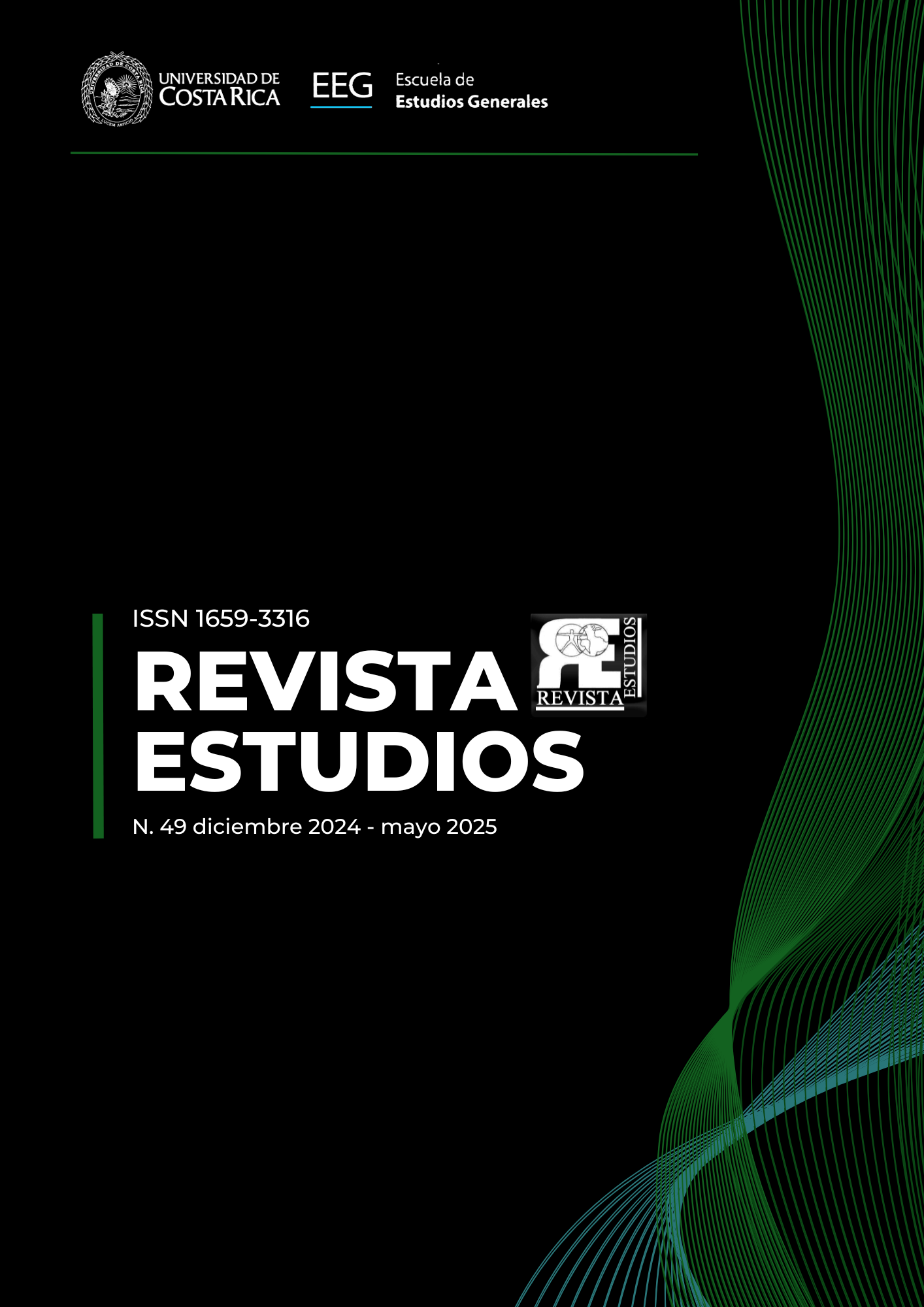In this closing edition of the year 2024, we explore diverse interdisciplinary perspectives. From historical, sociopolitical and educational analyses to literary studies and aesthetic reflections, the selected articles shed new light on contemporary issues and significant historical contexts.
The articles section begins with historical and sociopolitical analyses. Roy González-Sancho examines how history and territory influence fragmentation, agro-exports, and United States interventions in Central America. Mario Rojas Lizano studies the role of civil society in public health in Costa Rica through an analysis of the Movimiento Salud Sin Paredes (Health Without Walls Movement) and FRENASS, and their solidarity project in opposition to neoliberal policies. Roberto Blanco Ramos investigates how neoliberal policies perpetuate inequalities in marginalized neighborhoods in the city of San José, uncovering stigmatization dynamics under hegemonic housing policies that foster social exclusion. Beatriz Gutiérrez Müeller studies the narrative construction of Francisco Madero’s assassination in the Italian press, revealing the editorial intent to emphasize the tragedy’s horror among readers. Daniela Moreno Vargas analyzes how the Alianza de Mujeres Costarricenses (Alliance of Costa Rican Women) reacted to the coup d'état in Chile in 1973, highlighting the role of women’s political mobilization during the Cold War and the second wave of feminism in Latin America.
In literary studies, the vitality of rebellion takes center stage. Daniel Rojas Pachas explores the poetry of the Chilean writer and poet Nana Gutiérrez as literary resistance, using the butterfly as a symbol of a voice of resistance, challenging literary conventions and by using colloquial language. Meanwhile, Byron Ramírez Agüero examines how the poetry of Argentine writer and actress Camila Sosa Villada connects body, text and identity in a discourse that challenges heteronormativity and repression.
Regarding science education, German Vidaurre Fallas and Adrián Gamboa Gamboa implemented the flipped classroom in Physics lessons to develop skills and learning habits in university students.
The articles section concludes with Jeff Brenes Sánchez’s work, wich reviews theories about the end of art and connects them with contemporary postmodern artistic manifestations, proposing new terms that redefine plastic works within an updated philosophical framework.
Additionally, in the conferences section, Macarena Barahona Riera presents the lecture in which she recalls the events sorrounding María Isabel Carvajal’s exile, better known as Carmen Lyra, while advocating for revisit her legacy and the preservation of historical truth about her exile and her passing.
Finally, we share three bibliographic reviews of books published in 2023: José Pablo Rojas's review of Ronald Campos López's book Cantos a Dylan (versos homoparentales) [Songs to Dylan (homoparental verses)], Eduardo Madrigal's review of Jáirol Núñez Moya's text Del dicho al hecho, las políticas culturales y el discurso sobre la cultura del Estado costarricense (1998-2018) [From Words to Deeds. Cultural Policies and the Discourse on Culture of the Costa Rican State (1998-2018)] and Javier Agüero's review of Jorge Barrientos' most recent book Los historiadores marxistas británicos y su legado en la historiografía contemporánea [British Marxist Historians and Their Legacy in Contemporary Historiography].
This issue would not have been possible without the diligent and dedicated work of our editor Nicole Masís Chacón, to whom we express our deepest gratitude.
This edition gathers research that broadens our understanding of the world through the lens of humanities. We invite you to explore each contribution and join the academic dialogue that these works foster.
Ileana D'Alolio Sánchez
Director
